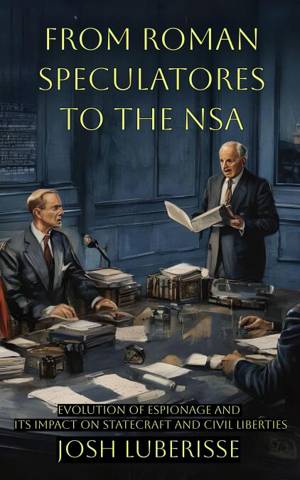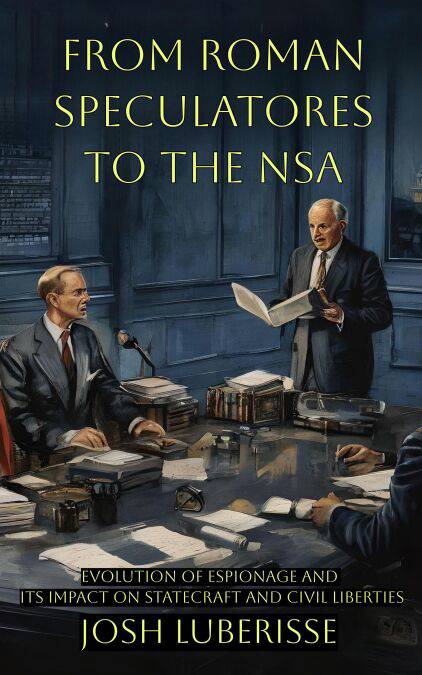
- Retrait gratuit dans votre magasin Club
- 7.000.000 titres dans notre catalogue
- Payer en toute sécurité
- Toujours un magasin près de chez vous
- Retrait gratuit dans votre magasin Club
- 7.000.0000 titres dans notre catalogue
- Payer en toute sécurité
- Toujours un magasin près de chez vous
From Roman Speculatores to the NSA: Evolution of Espionage and Its Impact on Statecraft and Civil Liberties EBOOK
Josh LuberisseDescription
"From Roman Speculatores to the NSA: Evolution of Espionage and Its Impact on Statecraft and Civil Liberties" is an essential scholarly resource that meticulously traces the evolution of espionage from its ancient roots to its modern manifestations. This comprehensive study is indispensable for academics, historians, journalists, researchers, and national security professionals seeking a deeper understanding of the integral role of intelligence in shaping statecraft and its profound implications for civil liberties.
The book offers a rigorous historical analysis of espionage tactics and strategies, providing insights into how intelligence gathering has influenced political and military decisions throughout history. It explores the transformation from rudimentary spying techniques in ancient times to sophisticated digital surveillance in the 21st century, providing a detailed account of technological advancements and their impact on intelligence operations.
Dive into the clandestine operations that shaped history, from the cunning Speculatores of Rome to the cutting-edge surveillance of the NSA. This book doesn't just recount tales of daring exploits and shadowy figures; it delves deep into the moral and ethical mazes navigated by spies throughout history. As you traverse through time, you'll discover the intricate dance of espionage and statecraft, and how it has continuously morphed to adapt to technological advancements and shifting geopolitical landscapes.
"From Roman Speculatores to the NSA" doesn't shy away from the dark side of espionage. It confronts the ethical quagmires, the personal sacrifices of those living double lives, and the impact of clandestine operations on individual freedoms. It's a thought-provoking exploration of how intelligence work, often glamorized in popular culture, grapples with issues like torture, privacy invasion, and the thin line between security and liberty.
Beyond mere historical recounting, the book critically examines the ethical and moral dimensions of espionage. It delves into the contentious issues of privacy, civil liberties, and the ethical dilemmas faced by intelligence professionals, offering a nuanced perspective on the trade-offs between national security and individual rights.
The narrative is enriched with case studies and real-world examples, making it a valuable resource for understanding the complexities and challenges of modern intelligence work. The book also addresses the legal frameworks and oversight mechanisms that govern espionage activities, providing a comprehensive overview of the contemporary intelligence landscape.
For professionals and scholars in the fields of international relations, security studies, political science, and history, "From Roman Speculatores to the NSA" offers a scholarly yet accessible analysis. It invites readers to critically engage with the strategic, ethical, and legal aspects of espionage and consider its future trajectory in an increasingly interconnected and digital world. This book is a thought-provoking contribution to the discourse on espionage and national security, offering a well-researched and balanced perspective on a subject that continues to be relevant in the field of international affairs.
Spécifications
Parties prenantes
- Auteur(s) :
- Editeur:
Contenu
- Langue:
- Anglais
Caractéristiques
- EAN:
- 9798215503584
- Date de parution :
- 26-11-23
- Format:
- Ebook
- Protection digitale:
- /
- Format numérique:
- ePub

Les avis
Nous publions uniquement les avis qui respectent les conditions requises. Consultez nos conditions pour les avis.






